

Essay on Educational Tour
Students are often asked to write an essay on Educational Tour in their schools and colleges. And if you’re also looking for the same, we have created 100-word, 250-word, and 500-word essays on the topic.
Let’s take a look…
100 Words Essay on Educational Tour
What is an educational tour.
An educational tour is a trip organized by schools or colleges. It helps students learn things outside their classrooms. It’s like a fun trip where students also get to learn new things.
Why is it Important?
Educational tours are important because they help students see and understand things better. They can see how things work in real life. These tours also help students remember what they learn for a long time.
Benefits of Educational Tours
These tours help students become more curious. They can ask questions and find answers on their own. It also helps them to work together and become better friends.
In the end, we can say that educational tours are great. They help students learn in a fun and exciting way. So, schools and colleges should organize more of these tours.
Also check:
- Paragraph on Educational Tour
250 Words Essay on Educational Tour
An educational tour is a trip that is done by students to learn about certain things outside their school. This can be a visit to a museum, a factory, a historical site, or even a different country. The main goal of such trips is to give students a chance to see and understand things they have learned in books.
Why is an Educational Tour Important?
Educational tours are very important for students. They help students to understand things in a better way. When students see things with their own eyes, they remember it for a longer time. These tours also help students to learn teamwork as they have to work together during the trip.
Benefits of an Educational Tour
Educational tours have many benefits. They make learning fun and exciting. Students get to explore new places and learn about different cultures. They also get a break from their daily routine, which helps them to relax and enjoy.
In conclusion, educational tours are a great way for students to learn and grow. They not only help in better understanding of lessons but also in personal development. So, schools should arrange more of these tours for the benefit of their students.
500 Words Essay on Educational Tour
Introduction to educational tours.
Educational tours are trips organized by schools and colleges. These trips aim to give students a break from their daily routine while also teaching them new things. These tours can be to different places like museums, factories, nature parks, and even other cities or countries.
The Purpose of Educational Tours
The main aim of these tours is to help students learn in a new and exciting way. They get to see and experience things that they usually read about in books. This helps them understand these topics better. For example, a trip to a science museum can make science more interesting and easy to grasp.
Learning Outside the Classroom
Educational tours offer a chance to learn outside the classroom. Students can touch, feel, and see the things they are learning about. This kind of learning can be more fun and effective. For instance, a trip to a historical site can make history come alive. It is different from reading about it in a textbook.
Developing Social Skills
Educational tours also help students improve their social skills. They get to interact with their friends and teachers in a different setting. They learn to work as a team and solve problems together. This can help them grow as individuals and learn important life skills.
Experiencing New Cultures
If the educational tour is to a different city or country, students get to experience a new culture. They can learn about the traditions, food, and lifestyle of the people living there. This can broaden their understanding of the world and make them more open-minded.
Importance of Fun and Relaxation
While educational tours are about learning, they also offer a chance to relax and have fun. Students get a break from their regular studies. They can enjoy the new sights and experiences. This can refresh their minds and make them more eager to learn when they return to school.
In conclusion, educational tours are a wonderful way to learn new things. They make learning fun and exciting. They also help students develop important skills and understand the world better. Thus, educational tours are an important part of a student’s life. They offer a unique blend of education and enjoyment that benefits students in many ways.
That’s it! I hope the essay helped you.
If you’re looking for more, here are essays on other interesting topics:
- Essay on Educational Psychology
- Essay on Education Then And Now
- Essay on Education System In The Philippines
Apart from these, you can look at all the essays by clicking here .
Happy studying!
Leave a Reply Cancel reply
Your email address will not be published. Required fields are marked *
Save my name, email, and website in this browser for the next time I comment.


Report Writing: Educational Tour
Educational tours are valuable components of experiential learning, offering students firsthand experiences that enhance their understanding of academic concepts outside the classroom. Writing a comprehensive report on such a tour not only documents the journey but also evaluates its educational impact. Here’s how to craft an engaging and informative report on an educational tour.
Table of Contents
Introduction and Tour Details
Begin your report by setting the stage with essential information about the educational tour, including its destination, date, duration, and the educational goals aimed to be achieved. Mention the group that participated, whether it was a specific class, grade level, or club. This introduction should clearly outline the purpose of the tour and how it ties into the broader educational curriculum, providing a foundation for the detailed account that follows.
Activities and Educational Outcomes
Detail the itinerary and specific activities that comprised the tour. Describe each site visited, the educational content encountered, and any interactive or hands-on experiences that were part of the tour. Focus on how these activities align with the educational objectives of the tour, discussing specific learning outcomes and how the tour helped enhance the students’ understanding of certain subjects or concepts.
Analysis and Conclusions
Evaluate the overall success of the tour by discussing student engagement, logistical execution, and feedback received. Assess how well the tour met its educational objectives and the level of student participation and interest. Reflect on any logistical challenges encountered and provide recommendations for future tours. Conclude by summarizing the tour’s value to the educational program and suggesting improvements or new ideas for subsequent educational tours.
Educational Tour Report Example #1
An educational tour is an excellent opportunity for students to learn outside of the classroom setting. It provides a chance for them to experience different cultures, explore new places, and gain practical knowledge that they can apply in real-life situations. The main purpose of this tour is to broaden the students’ horizons and enhance their learning experience.
The first destination of the educational tour is the Science Museum. The museum houses a vast collection of exhibits that showcase the latest advancements in science and technology. It is an excellent opportunity for students to learn about various scientific phenomena, including electricity, magnetism, and optics. The exhibits are interactive, allowing students to participate in hands-on activities that help them understand the concepts better. The museum visit is relevant to the tour’s theme of promoting scientific knowledge and encouraging students to pursue careers in science.
The second educational destination is the Historical Museum, which showcases the rich history of the country. The museum features exhibits that highlight significant events in the country’s past, including the struggle for independence and the formation of the government. The visit to the museum is an opportunity for students to learn about the historical significance of the country and its impact on the present. It also promotes the tour’s theme of encouraging students to be knowledgeable about their country’s history.
The third educational destination is the Environmental Park, which is a natural reserve that houses various flora and fauna. The park is an excellent opportunity for students to learn about the importance of preserving the environment and the impact of human activities on the ecosystem. The park visit is relevant to the tour’s theme of promoting environmental awareness and encouraging students to take action to protect the environment.
In conclusion, the educational tour provides an excellent opportunity for students to learn outside of the classroom setting. The tour’s theme of promoting scientific knowledge, historical awareness, and environmental consciousness is evident in the choice of destinations. The tour is an excellent opportunity for students to gain practical knowledge that they can apply in real-life situations, broaden their horizons, and enhance their learning experience.
Educational Tour Report Example #2
Educational tours are an excellent way to learn about new places and cultures. Recently, I had the opportunity to go on an educational tour that took me to various destinations. This tour was filled with exciting experiences, and I learned a lot during my trip. In this essay, I will describe my educational tour and the three destinations that we visited.
Our first destination was the local museum, which was dedicated to the history and culture of the region. As soon as we entered the museum, we were greeted with a vast collection of artifacts and exhibits that showcased the region’s rich history. We learned about the indigenous tribes that once inhabited the area and their way of life. The museum also had exhibits that highlighted the region’s flora and fauna, which helped us understand the ecosystem better. Overall, the museum was an excellent way to start our educational tour.
Our next stop was a historical landmark, which was a fascinating experience. The site had a rich history that dated back to the colonial era, and we were able to explore the architecture and significance of the site. The tour guide provided us with a detailed account of the events that took place at the site, and we were able to visualize the events better. We also had the opportunity to see some of the artifacts that were recovered from the site, which added to our learning experience.
Our final destination was a nature reserve, which was a unique experience. We were able to observe and learn about the flora and fauna of the area. The reserve was home to various species of animals and plants, and we had the opportunity to see them up close. The tour guide provided us with valuable information about the ecosystem and how it was being preserved. We also learned about the threats that the ecosystem was facing and the steps being taken to protect it.
In conclusion, my educational tour was a fulfilling experience that allowed me to learn about new places and cultures. The three destinations that we visited provided us with a diverse learning experience that was both educational and exciting. The tour helped me appreciate the importance of preserving our history, culture, and environment. Overall, it was an enriching experience that I will cherish for years to come.
Educational Tour Report Example #3
Educational tours are an excellent way to enhance the learning experience of students. These tours provide an opportunity to explore the world outside of the classroom and to gain practical knowledge. In this essay, we will explore the educational value of an educational tour that includes a visit to the Museum of Natural History, a Historical Landmark, and an Art Gallery.
The Museum of Natural History is an excellent place for students to learn about the natural world. The exhibits and displays in the museum are designed to educate visitors about the history of the earth and the various species that have inhabited it. Students can learn about the evolution of life on earth, the diversity of species, and the importance of conservation. The museum also provides interactive learning opportunities, such as hands-on exhibits and educational programs.
Visiting a Historical Landmark provides students with a unique opportunity to learn about the history of a particular place. The landmark may be a building, monument, or site that is significant to the history of a region or country. Students can learn about the historical context of the landmark, the events that took place there, and the people involved. This information can be used to connect to the curriculum and learning objectives, such as understanding the impact of historical events on society.
An art gallery is an excellent place for students to learn about art and its significance in society. The gallery may feature a variety of artwork, such as paintings, sculptures, and installations. Students can learn about the artists, the techniques used, and the historical context of the artwork. Art appreciation and analysis are essential skills that can be integrated with other subjects such as history and literature.
In conclusion, an educational tour that includes a visit to the Museum of Natural History, a Historical Landmark, and an Art Gallery can provide students with a diverse range of learning experiences. These experiences can enhance their understanding of the world around them and help them develop essential skills such as critical thinking, problem-solving, and creativity.
Final Thoughts
A well-written report on an educational tour serves multiple purposes: it documents the experience, evaluates its educational impact, and provides insights for future planning. By detailing the itinerary, analyzing educational outcomes, and reflecting on logistical arrangements, the report not only captures the essence of the experience but also aids in the continuous improvement of educational excursions.
About Mr. Greg
Mr. Greg is an English teacher from Edinburgh, Scotland, currently based in Hong Kong. He has over 5 years teaching experience and recently completed his PGCE at the University of Essex Online. In 2013, he graduated from Edinburgh Napier University with a BEng(Hons) in Computing, with a focus on social media.
Mr. Greg’s English Cloud was created in 2020 during the pandemic, aiming to provide students and parents with resources to help facilitate their learning at home.
Whatsapp: +85259609792
[email protected]

Get Daily Travel Tips & Deals!
By proceeding, you agree to our Privacy Policy and Terms of Use .
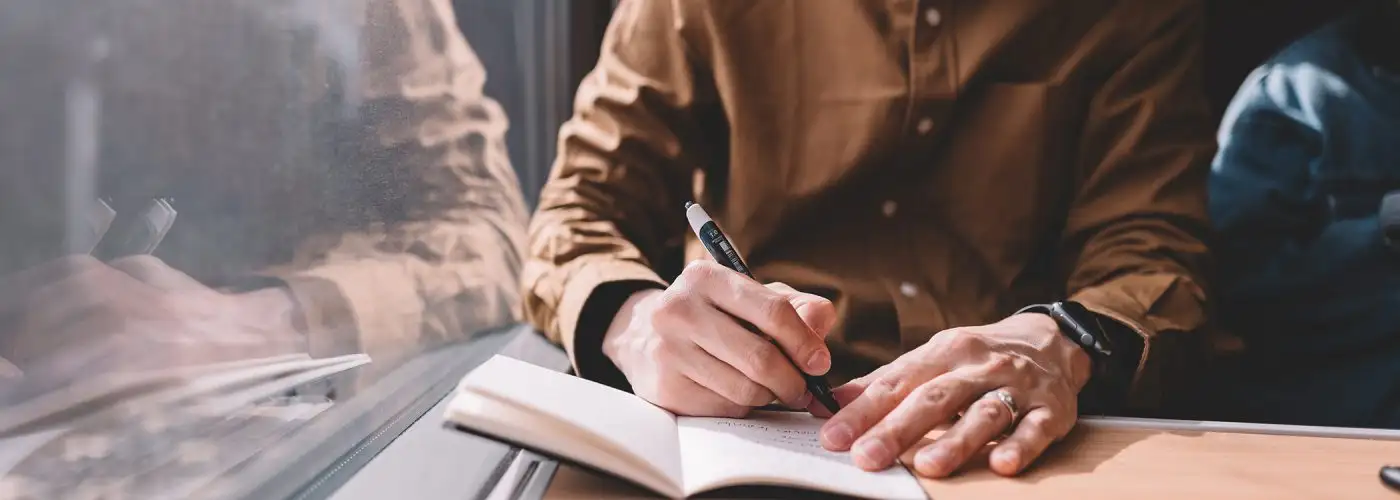
Write a Good Travel Essay. Please.
Kathleen Boardman
Travel Smarter! Sign up for our free newsletter.
Editor’s Note: We know that many of you are looking for help writing travel experience essays for school or simply writing about a trip for your friends or family. To inspire you and help you write your next trip essay—whether it’s an essay about a trip with family or simply a way to remember your best trip ever (so far)—we enlisted the help of Professor Kathleen Boardman, whose decades of teaching have helped many college students learn the fine art of autobiography and life writing. Here’s advice on how to turn a simple “my best trip” essay into a story that will inspire others to explore the world.
Welcome home! Now that you’re back from your trip, you’d like to share it with others in a travel essay. You’re a good writer and a good editor of your work, but you’ve never tried travel writing before. As your potential reader, I have some advice and some requests for you as you write your travel experience essay.
Trip Essays: What to Avoid
Please don’t tell me everything about your trip. I don’t want to know your travel schedule or the names of all the castles or restaurants you visited. I don’t care about the plane trip that got you there (unless, of course, that trip is the story).
I have a friend who, when I return from a trip, never asks me, “How was your trip?” She knows that I would give her a long, rambling answer: “… and then … and then … and then.” So instead, she says, “Tell me about one thing that really stood out for you.” That’s what I’d like you to do in this travel essay you’re writing.
The Power of Compelling Scenes
One or two “snapshots” are enough—but make them great. Many good writers jump right into the middle of their account with a vivid written “snapshot” of an important scene. Then, having aroused their readers’ interest or curiosity, they fill in the story or background. I think this technique works great for travel writing; at least, I would rather enjoy a vivid snapshot than read through a day-to-day summary of somebody’s travel journal.
Write About a Trip Using Vivid Descriptions
Take your time. Tell a story. So what if you saw things that were “incredible,” did things that were “amazing,” observed actions that you thought “weird”? These words don’t mean anything to me unless you show me, in a story or a vivid description, the experience that made you want to use those adjectives.
I’d like to see the place, the people, or the journey through your eyes, not someone else’s. Please don’t rewrite someone else’s account of visiting the place. Please don’t try to imitate a travel guide or travelogue or someone’s blog or Facebook entry. You are not writing a real travel essay unless you are describing, as clearly and honestly as possible, yourself in the place you visited. What did you see, hear, taste, say? Don’t worry if your “take” on your experience doesn’t match what everyone else says about it. (I’ve already read what THEY have to say.)
The Importance of Self-Editing Your Trip Essay
Don’t give me your first draft to read. Instead, set it aside and then reread it. Reread it again. Where might I need more explanation? What parts of your account are likely to confuse me? (After all, I wasn’t there.) Where might you be wasting my time by repeating or rambling on about something you’ve already told me?
Make me feel, make me laugh, help me learn something. But don’t overdo it: Please don’t preach to me about broadening my horizons or understanding other cultures. Instead, let me in on your feelings, your change of heart and mind, even your fear and uncertainty, as you confronted something you’d never experienced before. If you can, surprise me with something I didn’t know or couldn’t have suspected.
You Can Do It: Turning Your Trip into a Great Travel Experience Essay
I hope you will take yourself seriously as a traveler and as a writer. Through what—and how—you write about just a small portion of your travel experience, show me that you are an interesting, thoughtful, observant person. I will come back to you, begging for more of your travel essays.
Take Notes in a Cute Journal
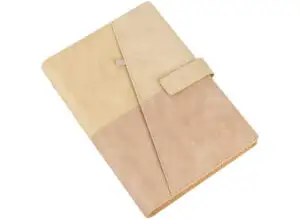
Keep track of all the crucial details- and even the ones you might forget, in a durable and refillable journal.
More from SmarterTravel:
- Genealogy Travel: How to Find Your Family Tree
- The Essential International Packing List
- 9 DIY Ways to Upgrade Economy Class
We hand-pick everything we recommend and select items through testing and reviews. Some products are sent to us free of charge with no incentive to offer a favorable review. We offer our unbiased opinions and do not accept compensation to review products. All items are in stock and prices are accurate at the time of publication. If you buy something through our links, we may earn a commission.
Top Fares From

Don't see a fare you like? View all flight deals from your city.
Today's top travel deals.
Brought to you by ShermansTravel
Oslo to Bergen: 6-Night Norway Fjords...

Luxe, 7-Night Caribbean & Mexico Cruise...
Regent Seven Seas Cruises

Ohio: Daily Car Rentals from Cincinnati

Trending on SmarterTravel

Study trips and experiential learning: from preparation to post-trip reflection
Rebecca Wang outlines the key steps to take before, during and after a successful international field trip
Rebecca Wang

Created in partnership with
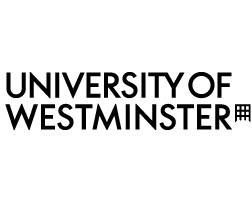
You may also like
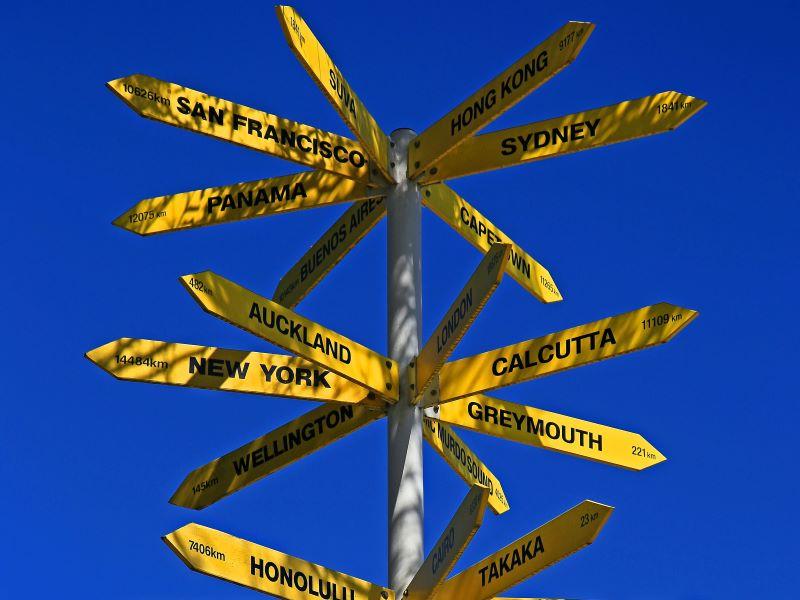
Popular resources
.css-1txxx8u{overflow:hidden;max-height:81px;text-indent:0px;} How to develop a researcher mindset as a PhD student
Formative, summative or diagnostic assessment a guide, emotions and learning: what role do emotions play in how and why students learn, how to assess and enhance students’ ai literacy, how hard can it be testing ai detection tools.
At the heart of our master’s course in international business and management are what we term the “six Cs”. We support our students in developing:
- cross-cultural competence
- collaboration
- communication
- critical thinking
- compassion.
To foster the six Cs, we place emphasis on integrating students from diverse cultural and educational backgrounds and encourage them to develop these competencies through experiential learning. To achieve this, we organise international and domestic study trips. A key feature of these trips is linking a genuine business challenge with a specific module’s authentic assessment. The tasks require students to work within multicultural teams and apply their knowledge to real-world challenges.
I will use a field trip to Tashkent, in Uzbekistan, to illustrate how best to prepare and engage students with authentic business assignments overseas. The task was to answer the question: “What would be the predicted proportion of online and offline shopping, specifically in the grocery sector, in retailing businesses in Uzbekistan in five years, 10 years etc, based on the experience of developed countries such as the UK, the US and Japan?”
This is what we learned:
Promote the aims of the trip early
To support students in understanding the learning outcomes and objectives of the study trip, start your promotion as early as possible – ideally when students enrol on the course. Provide a briefing focusing on the aims and desired learning outcomes of the field trip, as well as outlining the nature of the business challenge they will be handling. It is worth familiarising students with travel procedures for the intended destination, so they know what to expect.
- How to make campuses and courses more compassionate
- Guiding learning by activating students’ inner feedback
- Creating equitable research partnerships across continents
Establish industry partners
Establish partnerships with local businesses or organisations that are willing to jointly set up authentic business challenges that students can work on in a professional consulting manner to enhance their learning. A partner university in situ is likely to have an extensive network of local business contacts.
With the support of our partner university, Westminster International University in Tashkent (WIUT), we were connected with an industry partner in a relevant sector.
The three main criteria for choosing a business partner were:
- The authentic business challenge should have impact on the local economic development.
- It should be a win-win situation for students and the partner organisation.
- The study trip should play a crucial role in enhancing transnational education and cooperation.
How to prepare for a study trip
- Team building: Guide students to self-select teams that are balanced in terms of numbers and nationalities. To support students in developing teamwork skills, assign pre-study trip activities. For example, we asked our student teams to find reports, journal articles and news about Uzbekistan’s economic and business environment in the relevant sectors, and to research the client company.
- Knowledge-input workshop: Organise a workshop or training sessions to help students develop the knowledge and skills they will need during the field trip. For our students, these skills included designing surveys, interviewing, analysing data and presenting. Ensure that any fieldwork or real-world challenge is related to the contents of your core module.
- Consultancy and research skills workshop: Invite industry professionals to deliver intensive skills workshops that equip students with relevant professional skills. In our case, an international business consultant was invited to train students in workplace skills, such as consultancy principles, consultancy style, professional behaviour and communication, and key tools for planning and executing a consultancy assignment.
If you partner with a local institution ahead of a study trip, involve their staff and students in working with your students on the project, as we did with WIUT. Each team should be given significant free rein in how they direct their projects, such as choosing methods for collecting data. But make sure their lecturers or tutors are on hand to check their progress and provide guidance when needed.
It’s important to keep the focus and pace throughout the trip. Students’ progress was moderated and checked through daily briefings and summary meetings. Our students had two days for data collection, analysis and presentation preparation. On the fourth day, students presented their findings to a panel that included the CEO of the client company, WIUT lecturers and students.
Post-study-trip phase
Ask each team to produce a reflective diary, in which they consider and feed back on the study trip process, what went well, what they achieved and learned and how they could do it better next time. Students’ feedback and our own reflections on everything from preparation workshops to post-trip reflection helped refine the second study trip.
Four key pieces of advice for organising a successful study trip
Get management and administrative support.
From planning, organising and coordinating to implementing the trip, seek support from other teams within the university, drawing on your institution’s expertise and resources. Find others to help with travel itineraries, transport and accommodation so you have the time to teach, liaise with partner companies and plan workshops and learning activities.
Engage and support students with targeted workshops
Workshops helped equip students with knowledge of the specific subject area, as well as hard and soft skills. Ask students to consider how to resolve practical difficulties they may come across in an unfamiliar country, such as language barriers and cultural differences. Lecturers met regularly with each team to monitor students’ progress throughout the project. This helped identify teams or students in need of support or a nudge.
Collaborate with a partner institution
The course team benefited from our partner institution when organising study trips to Tashkent. Through its contacts, we sourced the companies that participated. Our partner institution helped us find local students who volunteered to be interviewed, and who acted as interpreters when our students interviewed local people.
Build in a self-reflection activity
After the trip, as a round-up exercise, we asked students to apply Gibbs’ reflective cycle to think about what they had learned, and how to further their competencies and learn from intercultural dialogues, both in and out of the classroom. The study trip provided meaningful opportunities for students to develop their six Cs.
By arranging the field trip in the first semester of the course, we helped students build strong foundations in these six key competencies, as well as aiding strong course bonding. The success of the study trip reflects the collective efforts of a wide range of faculty at the University of Westminster and WIUT and the commitment and enthusiasm of a diverse group of students.
Rebecca Wang is principal lecturer in international business and management at Westminster Business School .
How to develop a researcher mindset as a PhD student
A diy guide to starting your own journal, contextual learning: linking learning to the real world, what does a university faculty senate do, hybrid learning through podcasts: a practical approach, how exactly does research get funded.
Register for free
and unlock a host of features on the THE site
- Skip to primary navigation
- Skip to main content

Free English Study Materials

Short Composition on A Study Tour

The study tour is a part and parcel of knowledge and education. It spreads the horizon of our mind and experience. our school organization study tour for us. I greeted this arrangement.
On the first day of our tour, we went to Mainamati and visited Lalmai-Manamati range of hills, Shalban Bihar, Ananda Bihar and the Museum. We found the museum decorated with bronze statues. They were the achievements of pala reign in Bangla.
On the second day, we reached Cox’s Bazar sea-beach. I was surprised to see the beautiful scenery of the sea-beach. We walked along the beach and enjoyed the musical murmuring sound of the sea.
We passed the next three days in the hilly areas of Rangamati and Bandarban and Khagrachari. We climbed up several hills and from the top of the hills, observed the beauty and splendour of the hilly areas.
On the 6th and 7th day we visited Chittagong seaports and Karnafuli Electricity Project at Kaptai. These places also offered us much practical knowledge; experience and pleasure.
My study tour opened a new world before my eyes. It has deepened and broadened my knowledge.
Similar Posts:
- Application for Permission for A Study Tour
- Application for Permission to Go on A Study Tour/Excursion
- Dialogue Between Two Friends on A Study Tour
- Paragraph on Marma People
- Composition on A Visit to The Buddhist Vihara At Paharpur
- Composition on What I Would Do After My S.S.C Examination?
- Paragraph on A Picnic in The Hills
- Composition on My Visit to A Zoo
- Dialogue Between You and Your Friend About Some Interesting Places in Dhaka
- Essay on Preparations for A Holiday Are Often More Enjoyable Than the Holiday Itself. What Are Your Experiences and Opinions?
- Call us Topics in English
- Privacy Policy
- terms of use
Topics in English Topics in english to learn and fluent pronunciation and writing and facilitate conversation between you and others, whether in school, work or daily life
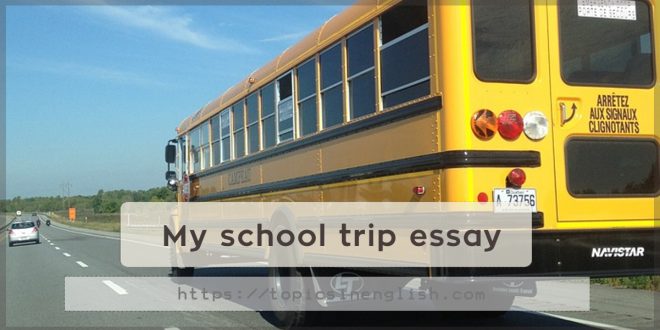
My school trip essay 6 models
My school trip essay ,School trips leave a great impact in the mind of the student where he goes without his family accompanied by friends and colleagues, which allows him to rely on himself and take responsibility to enjoy the activities of the trip.All this will be here in My school trip essay .
My school trip essay
School trips leave a great impact in the mind of the student, where he goes without his family, with his friends and colleagues, which allow him to rely on himself and take responsibility and enjoy the activities of the trip.
Each school planning for trips is as a recreational and educational way, supervised by social workers and school supervisors, who planning visits, ticketing, bus booking, etc.
I went on a school trip to (name of the city) of (Governorate name). of (city area in km) and (population number) approximately.
I prepared my small bag and put sandwiches, juice and water for the trip. I went to sleep early to wake up early to be full of energy on the journey.
We rode the bus in front of the school in the early morning and we left our parents and friends who did not come with us.
The bus driver displayed a documentary about the city we were going to visit and the tour supervisor told us about the directions and instructions we should follow and how to act in case of lost. He provided us emergency numbers and asked us to write them in a paper and keep in our pocket.
We arrived at our destination and started visiting the (museum name) which is a large museum featuring many important items that tell us the history of the city.
Then we went to visit the open museum which is an open area with many beautiful items.
Then we went to visit the important landmarks of the city.
The last stop of the trip was to visit the amusement park, a recreational city with lots of games.
The supervisor gave us two hours to enjoy our time, play the games we want and assemble before the door of the amusement park in preparation for riding the bus and back to our city.
We gathered two hours later in front of the amusement park door, the supervisor checked everyone’s presence and then we boarded the bus and returned to our city.
It was a beautiful day we enjoyed it a lot and we saw many of the city’s famous sights.
We learned a lot about its history and the history of its inhabitants.
Finally, we reached our city late at night. Our families were waiting for us.
We thanked the tour supervisor and went to our homes to sleep and prepare for school the next day.
a memorable school trip essay
It’s great to enjoy a little bit away from school and home for rejuvenation and energy, and this is exactly what happened. After working hard and excelling in school, I was able to go out on an unforgettable school trip. Through this trip, I was able to define my goals and benefit greatly from them.
This was an excursion to one of the seminars of the great Steve Jones. Just being in the midst of this huge crowd of scientists, inventors and businessmen made me know what I want to become in the future, and what are my upcoming priorities.
On this journey I was able to find answers to many of my questions and found the inspiration I wanted. Now I want to become in the future an inventor of something useful that benefits humanity and achieve great success for me, whether material or moral, through fame.
It is wonderful to know the importance of technology to society and how we inevitably go to it and the development of all means of services around us. And with just a little bit of clinging to the dream and fighting for it like Steve did, I can certainly succeed too.
simple essay on school trip
I feel very happy to go on a trip to the football stadium. This was a big surprise for us, to be able to watch an important match with friends.
Of course, I watched many matches with my family before, but this time the experience is different because it is with my friends and I was able to express and launch my enthusiasm, without feeling any pressure.
I enjoy this experience so much, and for sure I want to repeat this experience in other activities. Now I can’t wait to go home and tell my brother about this experience, and that in the future he should try going out with his friends on school trips and enjoying this holiday. It gives great psychological comfort and a boost of activity that helps to return to study with full vitality and activity.
essay on school trip to a park
Oh my gosh, I can’t describe the beauty of nature that I enjoyed during my last school trip. There is a very big difference between the constant presence between the big and fast industrial life and the relaxation in the vast gardens and parks that do not contain any noise.
It is great to go through this experience and go to one of the most beautiful parks that contain very beautiful gardening works and organized views of trees and roses.
The wonderful engineering work that I saw in the park is one of the best landscapes that my friends and I enjoyed watching.
And certainly immediately we felt the amount of interest and love from the people responsible for this place, and how they can preserve and show this place this beauty.
Of course I would love to go back on a school trip to the park and enjoy physical games with my friends like we did. This was one of the things I enjoyed in nature. It is great to find large green areas. This helped me relax a lot.
school tour experience essay
I would very much like to write an article about my experience in the last school tour, and point out the things I liked the most.
I find this tour very different from many of our previous tours. Previously, the tour was in only one place, and curiosity and enthusiasm ended before the tour ended.
But certainly this was different when we were able to visit many places in the same tour, such as the museum, the garden and the library. All of these places had a different effect.
We find when visiting the museum and meeting one of the guides working in the museum that he has that interesting and funny way of explaining the holdings. It makes you want to know more about its origin and the civilization it comes from.
But due to the lack of time, this made me even more excited, eager to listen. I am also eager to see another place and enjoy. This made it more beautiful and did not leave any way for boredom.
When visiting the library, I was able to sign one of the famous books and see some of the authors of these books. I always watched this event through movies only. It is great to try this experience and get some interesting and useful books.
But certainly nothing is so wonderful after a long day of listening and paying attention as visiting the park and walking around it to release all that energy.
I cannot describe the beauty of how I felt in the experience of the games and activities that we did inside the park. I can say this was the best school trip experience I’ve ever had.
a school field trip essay in English
One of the great school field trips I enjoyed was this trip, this weekend we were able to go on a school field trip to the zoo.
And there were a lot of interesting animals that wanted to feed and take pictures, many pictures with them. But of course, every field trip cannot pass without new experiences, some of which you will benefit from and others that delight you.
I can’t stop laughing whenever I remembered the monkeys, and how they used to behave, I can’t believe how smart this animal is, and how it can make you happy at any time. And also watching the peacock, what a beauty!, I did not feel the consistency and beauty of the colors, as I saw in this bird.
It was wonderful to learn some information about the habitat of many animals, which made me very eager to read about them, how they live and how important the group is to them, and how to unite among them, such as the blue whale and other collective animals that live in groups and like the wolf as well.
Certainly this field trip was very wonderful and contained a lot of information that I benefited from.
In this way we have given you My school trip essay, and you can read more through the following section:
- English essay
About admin
Related articles.
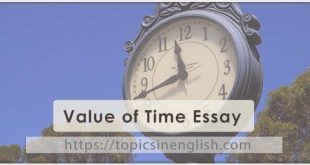
Value of Time Essay 3 Models
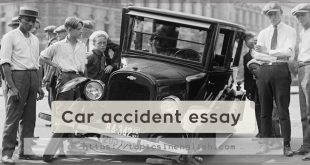
Car accident essay 6 models
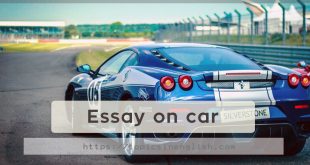
Essay on car 10 models
12 comments.
A school trip essay is very excellent and writing way is also perfect
A very good essay. Need more like this.
Yeah. A very good way of writing
Awesome Schools trips are always full of fun and interesting moment. Nice construction, fantastic essay. keep it up.
babi school trip xbagi alamat,tarikh,etc bodo writer
Nice 👍👍👍👍👍👍🙂
This information is truly valuable. I appreciate the practical tips you’ve shared.
Leave a Reply Cancel reply
Your email address will not be published. Required fields are marked *
How To Write A Report On Your School Trip Experience
We know what it’s like in teaching these days: everything needs a write-up. And school trips are no exception: from writing permission letters to parents, to the post-match analysis that are school trip reports.
Fortunately, the experts at NGT are here to help. Our tour planning tools page and Trip HQ hub contain all sorts of teacher resources, from letter templates to packing checklists. So you can get a head start on all that admin, and build a school trip your students will never forget.
As for how to write a report on a school trip, we can help with those too. Just read on for our handy guide.
The school trip report format
When reporting on a school trip , there are no ‘set’ ways to get started.
However, we’ve included some school trip report examples below, and outlined a few essential sections to help you out.
As for the length of your school trip report, you should aim for about two to three pages. This might sound quite long, but once you’ve filled out the key elements, it should come together fairly easily.
The School Trip Aims and Objectives
Every school trip should have some solid objectives behind it: from allowing geography students to see coastal erosion in action, to letting your French class practice their language skills at a real Parisian market.
Hence, the aims and objectives should be the first and most important part of your school trip report. A bulleted list will suffice.
The school trip location
In your analysis of your school trip, it’s also important to explain why you chose that location.
Was it a once in a lifetime chance to experience other cultures? Or an opportunity for students to get to know their local area?
It’s also worth noting down why this place, in particular, is relevant to your specific study topics . From museums and art galleries to sights and sounds, what is it about this destination that makes it the perfect spot to enhance your pupils’ classroom learning?
The school trip diary
A good school trip report should always include some diary-style entries. If it was a day trip, write up what your students did in the morning and afternoon. If you enjoyed a longer visit, you can separate out the activities from each day.
However, rather than simply writing down the itinerary, make sure you explain how students felt, and what they learned. Adding little details like what the weather was like, and all the sights and sounds you noticed, can really help to bring your experience to life.
A top tip is to use the daily entries within WST’s Trip HQ , therefore all your notes are securely kept in one place.
The school trip outcomes
This section is all about the educational impact of your adventure. Did your students fulfil their original objectives? What little surprises did you encounter along the way? Was there anything they learned that they didn’t expect to?
Once you’ve answered these questions, it’s time to establish the impact this experience will have in the classroom. For modern foreign language students, this might be improved fluency in their chosen language. For art students , it might be inspiration for their coursework. For geographers, a case study they can use in their exams.
Whatever it is, write it down – it’s a crucial part of your school trip report.
- AsianStudies.org
- Annual Conference
- EAA Articles
- 2025 Annual Conference March 13-16, 2025
- AAS Community Forum Log In and Participate
Education About Asia: Online Archives
Leading a short-term study trip for students in japan.
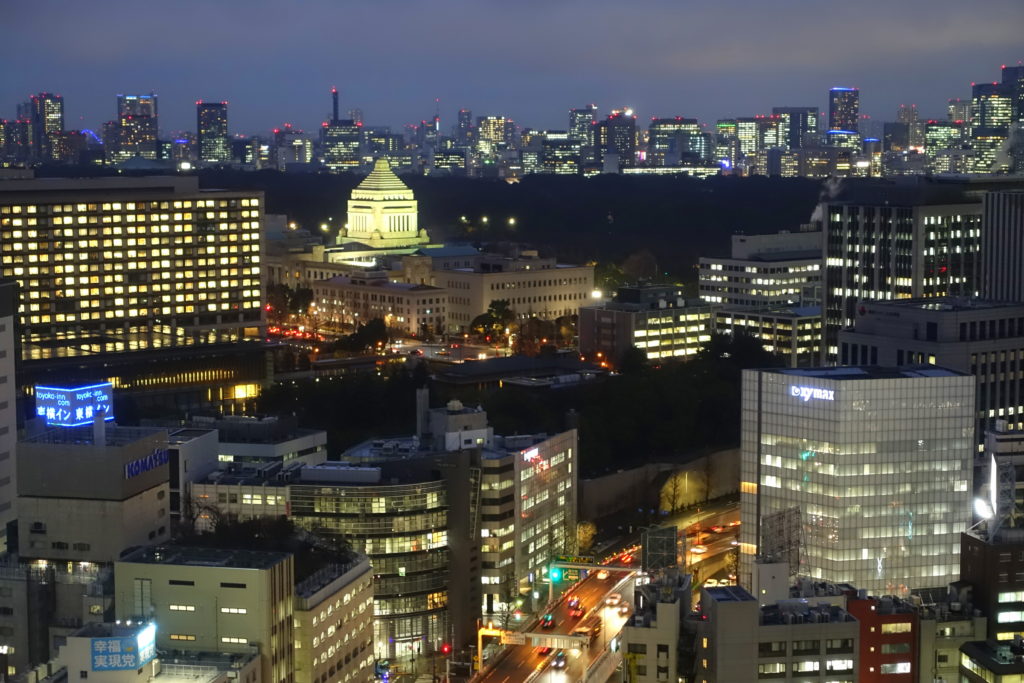
The best way for students to study the history, culture, and livelihoods of another country is through an organized in-country experience. There are various benefits that can accrue through such an endeavor. One can learn about a part of the world away from home while at the same time gaining a deeper appreciation of one’s own culture by looking at it from the outside. Ideally, a student will spend a full semester or year studying abroad, but that is a luxury that many cannot afford in terms of time or money. Another possibility is a carefully orchestrated group trip of ten to fifteen college-age students who travel with an informed instructor to a specific locale for two or three weeks of intensive study. The instruction should include the study of the host nation’s history, culture, and contemporary institutions and population. Efforts must be made to visit important historical or cultural sites, and to mingle with and especially have the chance for conversations with residents of the country. A short visit of two to three weeks can produce a fairly superficial view of another people and their culture, but even a brief encounter can give students a greater appreciation of the world around them.
Taking student groups abroad for short study courses was the most satisfying experience in my almost four decades of teaching at Mary Baldwin University (MBU) in Virginia. MBU has a short three-week “May term” every spring where it is possible for professors to take small groups of students abroad for mini-study tours. Over the years, I took students to Japan, China, Korea, Russia, Australia and New Zealand, Israel–Palestine, and all over Europe, including Switzerland, Italy, and Croatia. Because I am a Japan specialist who lived, worked, and studied in that country for several years as a student and young scholar, my most effective study abroad courses involved a dozen or more experiences in Japan from the early 1980s through 2015. The major goal of the essay that follows is to provide a nonspecialist undergraduate or high school instructor who might have the opportunity to take students to Japan (or visit Japan alone or with a partner) with what I believe to be an optimal Japan experience given limited time.
Developing a Brief Study Visit to Japan
A meaningful study trip to Japan must incorporate three elements: introducing the student to the natural beauty of the land, visiting important historical and cultural sites, and encountering modern institutions such as schools and government buildings. My colleagues and I also included visits to various businesses to allow students to see Japanese at work. Such visits included a stop at the news office of a major television station where students could watch a full noon news broadcast. We also included visits to a major Tokyo newspaper, department stores, and a recruiting office for Japanese students who wish to study in the United States.
Planning a study tour involves visits to many sites of interest, but there is also a realization that the students need at least two or three free days spread out throughout the trip to allow them to rest or go out on their own individually crafted experiences. Japan, with its justly deserved reputation as a safe place to travel and urban areas that consistently provide English-language signs for public transport and tourist attractions, is particularly appropriate for student-generated side trips. Students looked forward to these days off and found their own way to such places as Tokyo Disneyland, the Ghibli Art Museum in the Tokyo suburb of Mitaka to study Japanese animation, and Tokyo’s early morning fish market.
Each of these Japan study tours was listed in my college’s catalog as a three-credit-hour May term course titled Introduction to Asia. Students had to register for the course and subsequent trip by the beginning of February. The faculty included myself and another colleague who went on all Japan study tours with me. We met with our ten to fourteen students for six two-hour sessions during the spring semester, where we got to know each other as a group and we familiarized the students with the dynamics of the trip. Students received a brief overview of traditional and modern Japanese history, religion, and aspects of modern culture, including the role of education, the changing status of women, and modern Japanese pop culture. Students gained a lot by viewing the 2005 movie Nana about contemporary pop stars in Japan. Given the continued popularity of Japanese popular culture, more recent movies might be substituted for the one we used. We always invited exchange students from Japan to visit the class to talk about youth culture in Japan.
We also assigned students various readings on Japanese history and culture, and required a series of essays responding to questions concerning the readings. Students read Christopher Goto’s excellent 2009 book Modern Japan: A Very Short Introduction , my own 2001 book Under the Gaijin Gaze about education and the changing status of women, and selected articles on Japanese culture from past issues of Education About Asia . We developed essay questions asking students to discuss various Japan topics such as the role of Shinto as a religion of thanksgiving, who the students felt was responsible for Pearl Harbor, and to compare and contrast the worldviews of young women in Japan and the United States. Since the course was open to all Mary Baldwin students, including those who had never taken a course in Asian studies, this preparatory work meant that every participant had some background understanding of Japan before going there.
Another advantage of our six meetings before the actual trip was that we got to know each other as a group. We spent a lot of time with group discussions and listening to student questions, which always created a greater sense of group cohesion, which is vital for the success of the trip. By the end of this preparatory class, everybody knew each other’s names and personalities, which allowed us to work more as a cohesive group when in Japan.
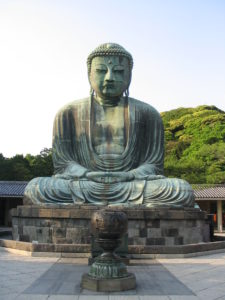
Travel and Lodging
Taking off from Dulles International Airport was always an exciting time, especially for those two or three students who had never flown before and who, when they arrived in Japan, were riding trains for the first time. There were always students who had never really been away from Virginia but who were on their way to Tokyo. We always tried to travel on a Japanese airline, where our students could become acquainted with Japanese service and watch select Japanese movies en route.
When we began making these study trips to Japan in the mid-1980s, we found that it was most economical in terms of cost and time to choose one base of operations rather than moving students from one hotel to another. This led to our decision to focus our trips on Tokyo, which offered, along with some day trips, all the sites that we wanted students to experience while in Japan: nearby historical sites such as Kamakura, Hakone, and Nikkō would give students a sense of Japan’s heritage and natural beauty, while Tokyo itself would provide opportunities to visit museums, a couple of schools, the National Diet (parliament), and various Tokyo-area businesses.
There are many fine, efficient hotels in central Tokyo that cater to foreign student groups. We always chose the Hotel Asia Center of Japan ( Ajia Kaikan ) in Akasaka, very close to the Roppongi area of central Tokyo. The Hotel Asia Center of Japan still caters to foreign study tour groups with inexpensive but clean rooms and individual baths. We got double and triple rooms at very reasonable rates, which included a sumptuous breakfast that always included fresh fruit and some of the best croissants I have ever eaten. The center was very near several major subway lines that could take us anywhere we wished to travel in the city. Students soon became quite adept at using the Tokyo subways and made full use of them on their own during their free days.
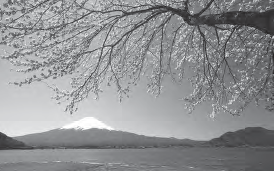
We always timed our trips for May just after the crush of the national holiday Golden Week (late April and early May) and before the dreary and muggy monsoon rainy season that makes portions of summers so wet and miserable in Japan. May in Japan offers cool, sunny days and the glory of beautiful gardens in full bloom.
Historic and Scenic Sites Relatively Near Tokyo
The Tokyo area is blessed with a number of important cultural and historic sites that were not destroyed during the Pacific War. The most important of these places is the coastal city of Kamakura, which from 1185 to 1333 was the shogunal capital of Japan. Visitors to Kamakura, only about an hour from Tokyo station by train, can see a great number of stunning Buddhist temples and shrines that rival many of those found in Nara and Kyoto. I always took my students to the Hase temple complex, which includes caves, beautiful gardens, historic temples, and stunning mountain views of Kamakura’s beaches and harbor. We also visited the big Buddha (daibutsu) and Hachimangu Shrine, and hiked across the island of Enoshima to enjoy the caves, rocky coastline, and crashing waves on the far side of the island. Enoshima is connected to the mainland by a short causeway and is located just west of Kamakura, a few minutes by train from Kamakura station.
Another historic site that all visitors to Japan should visit is Nikko National Park deep in the mountains of central Japan but only two hours one way from downtown Tokyo. There is a large temple and Shinto shrine complex that honors the Tokugawa shoguns, as well as spectacular natural scenery, including Lake Chuzenji with its famous waterfall, which enthralled each of my student groups.
Students always got a thrill when we traveled from Tokyo to nearby Fuji Hakone National Park, roughly ninety minutes, and about fifty miles west by train from Shinjuku station in Tokyo. The trip includes a good haul on the Hakone Tozan railway, several cable car rides, and a lengthy boat ride across Lake Ashinoko with spectacular views of Mount Fuji. This trip also includes a visit to various thermal hot springs, where tourists can experience the beauty of Japan’s mountain scenery.
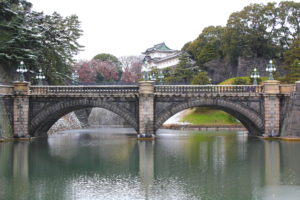
Opportunities in Tokyo
Tokyo is a vast, very modern city with a virtually infinite number of interesting opportunities to pursue. In order to deepen historical understanding of the city, I always took my students first to the outer moat and views of the Imperial Palace (once the residence of the Tokugawa Era shoguns from 1600 to 1868), which are spectacular. Another must-visit is the Meiji Shrine in the Harajuku section of Tokyo. Students always took a special liking for the Inner Garden, with its beautiful iris garden that was always in full bloom when we visited. I always took the students to the huge Edo Museum, which gives a very colorful and comprehensive view of Tokyo history from the Edo period (1600–1868) to the Pacific War bombing and rebirth of Tokyo after the war.
Some students always asked me to take them to the Yasukuni War Memorial Shrine and associated war museum. Before visiting Yasukuni Shrine, I explained that it was a memorial to honor Japanese war dead and that several of Japan’s notorious wartime leaders were honored there. The adjoining museum’s focus is Japan’s modern military history and includes a brief movie honoring Japan’s war dead.
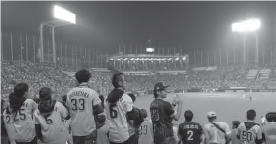
When I was a full-time faculty member, Mary Baldwin College had two sister school relationships with a small college outside of Tokyo and with Soka University in Hachioji, a Tokyo suburb. Instructors and students on a study tour of Japan should make every effort to visit one or more Japanese schools. We spent a full day visiting the Soka primary, middle, and high schools in Tokyo, which gave my students ample time to meet and mingle with Japanese students of all ages. There was also a visit with students at our other sister school.
Another must-visit is the National Diet in Tokyo. I had long ago befriended a leading member of the Diet, who always met with our students and personally guided them through some of the inner sanctums of Japan’s parliament. This is not a likely one-to-one relationship many study tour leaders might have, but there are also public tours that foreigners are welcome to join. Lunch in the parliamentary dining room is also highly recommended.
Nara and Kyoto
As described earlier, because of severe time limits and the abundance of things to see and do in Tokyo, we made the Tokyo (Kantō) region the hub of our activities. However, I offered an optional one-day trip to Nara and Kyoto for those students interested in getting a glimpse of these historic cities. We left on the first morning shinkansen (bullet train) headed to Kyoto from Tokyo Station, arrived at 8:30 a.m. We spent a full morning in Nara visiting Tōdaiji temple and associated temples and shrines in the morning, as well as a variety of temples and Nijo Palace in the afternoon, in Kyoto, we paid a courtesy visit to our sister college in Kyoto, Doshisha Women’s College. We caught the last train back to Tokyo after dinner.
Our students got a very good taste of Japan in two and a half weeks and were always reluctant to leave. It was fascinating to learn what they had done on their free days. A number always made the trek to Tokyo Disneyland or went with me to see a Japanese baseball game at the Tokyo Dome or at Meiji Jingu Stadium near our hotel. Others found their way to the morning fish market, and all of them spent countless hours in various large department stores in Shinjuku and Harajuku and at various youth hangouts in Shibuya. I was always amazed at how adept even the shiest student became at mastering the maze of Tokyo subways.
Students were obliged to keep a detailed journal of their impressions of Japanese life, which also became the basis of their final grade for the Introduction to Asia course.
Two to three weeks is a very short time to visit another country, but it was a very welcome opportunity for students with limited time and budgets. They always commented that their own culture was in itself unique, and they expressed greater respect and tolerance for people from other places. A number of these students later returned to Japan to spend a full semester at one of our sister schools in Japan. Many became teachers in Japan’s JET Program, and even today, years after my retirement from full- time teaching, there are a half-dozen or more former students who have made Japan their permanent homes.
Mary Baldwin’s unique relationship with Japanese schools has brought dozens of Japanese students to study at our Virginia campus for a semester or a full year. We also receive students from India, Taiwan, China, and Korea, which allows American students to encounter young Asians on their own turf. I am grateful to have been part of the international exchanges that have occurred because of the college.
I also hope this essay is helpful to those instructors and students who wish to maximize their opportunities in Japan given limited time.
Share this:
- Click to share on LinkedIn (Opens in new window)
- Click to share on Facebook (Opens in new window)
- Click to share on Twitter (Opens in new window)
- Click to share on Pinterest (Opens in new window)
- Latest News
- Join or Renew
- Education About Asia
- Education About Asia Articles
- Asia Shorts Book Series
- Asia Past & Present
- Key Issues in Asian Studies
- Journal of Asian Studies
- The Bibliography of Asian Studies
- AAS-Gale Fellowship
- Council Grants
- Book Prizes
- Graduate Student Paper Prizes
- Distinguished Contributions to Asian Studies Award
- First Book Subvention Program
- External Grants & Fellowships
- AAS Career Center
- Asian Studies Programs & Centers
- Study Abroad Programs
- Language Database
- Conferences & Events
- #AsiaNow Blog
Academia.edu no longer supports Internet Explorer.
To browse Academia.edu and the wider internet faster and more securely, please take a few seconds to upgrade your browser .
Enter the email address you signed up with and we'll email you a reset link.
- We're Hiring!
- Help Center

Study tours: enhancing the international mobility experience.

In a rapidly changing world, students, who are the future entrepreneurs, consultants, and diplomats, must adapt and become global in their outlook. This can only be achieved if they have teachers who are international in their approach to teaching and are familiar with the world. This paper looks at a number of student study tours that have been operating in Thailand and examines some of the different approaches that are taken to enhance the educational experience. While the focus is primarily on visits from New Zealand and Australia to Thailand, a number of general conclusions may be drawn from this. The prospect of internationalization is also viewed from the perspective of the host country. Although not proposing any ideal model, hopefully the findings will provide some useful indicators for any individual or institution involved in the organization of educational study tours and lead to ways in which the experience can be enhanced for participants.
Related Papers
Yaprak Dalat Ward
This paper presents the phase one findings of a two-phased action research study which led to the development of a plan to design a study abroad program for both undergraduate students and students of DECA, a business organization, at the college of business and entrepreneurship of a state university set in a rural area in the Midwest of the United States. The question which guided the research was: How can a study abroad program, promoting career enhancement, be designed to meet the needs of the students from rural agricultural communities? Exploratory data were collected both on campus and in Thailand over two years, and included reflections, observations, informal interviews and conversations, peer reviews, documents and artifacts. Based on the findings, a plan emerged with three sections: 1) making instructional decisions, 2) creating learning by experience, and 3) updating logistics. The instructional decision section was further categorized into three areas: 1) career enhancem...
International Education Journal
Reyes Quezada
Education About Asia
Brooke Schedneck
How can students make meaning out of their experiences abroad? How can they connect their learning inside and outside the class-room? These are difficult questions for faculty teaching in a study abroad context where students learn not only from their professors. They have the opportunity to learn from religious leaders, museums, and temples , as well as to think about issues and current debates in societies other than their own as they exist in reality, not just in textbooks. As much as excursions enhance learning in study abroad contexts, the classroom is equally valuable.
Christine Halse
Frontiers: The Interdisciplinary Journal of Study Abroad
Cassandra L Atherton
This article examines the positive impact of overseas study tours on the teaching philosophies and classroom strategies used by the professors running the tours. While education scholars have identified long term benefits of overseas study tours for students, less attention has been paid to flow on benefits for teachers. This article aims to address this gap in the literature by having five Australian professors describe how their international study tour experiences changed and improved their teaching in the classroom. The article shows that in the process of developing a successful overseas study tour, professors can learn lessons about teaching that they can use productively in the classroom.
Journal of Business Studies Quarterly
Mahdi Borzooei
Tonia Gray , Benjamin T Jones , Tim Hall
An increasing emphasis on university internationalisation, global citizenship education and outbound mobility experiences (OMEs) has seen international study travel become a key staple of tertiary education. University students undertake learning experience for academic credit overseas for a period shorter than a semester under the guidance of an academic staff member. OMEs may involve student service learning or be tour based and can occur in either single or multiple destinations. In the mid-1980s less than half a million students worldwide spent part of their degree in another country, compared to some three million students in 2011 (Rizvi, 2011, p.693). Australian university students are part of this global trend with participation in OMEs at record numbers. In just three years, the number of students studying abroad increased from 15,058 in 2009, to 24,763 in 2012 (Department of Education, 2014). During the same period, the growth of short-term OMEs, often less than three weeks, outstripped the traditional semester or year-long exchange. In 2012, OMEs became the major form of outbound mobility with 8,570 Australian students participating (Olsen, 2013, p.14). Dwyer (2004) suggests study abroad programs of at least six weeks are required to maximise learning outcomes. Despite this reservation, the popularity of short-term OMEs continues to grow. In Australia, federal government funding sources, such as the Department of Foreign Affairs and Trade's New Colombo Plan (NCP), provides funding for a range of OMEs, including many short-term study trips. With student participation increasing, greater consideration needs to be given to the ability of OMEs to deliver high quality learning outcomes to students, particularly within an intensive short-term format. A majority of existing literature relays the experiences of academic staff in designing and. While these evaluations are insightful, the observations may not be relevant to all of the wide variety of OMEs now being offered. This paper promotes a reconstructed Jafari (1987) tourism model as a framework to understand the various components of the student and staff travel experience while participating in an OME, especially short-term overseas study trips. Working through each of the components of the Jafari model allows recognition of the changing needs and requirements of both students and staff throughout an OME and the tensions that accompany this relationship. To facilitate the discussion we draw on the experience of a 16-day OME to Vietnam offered by Western Sydney University's School of Business. This study tour has been available annually since
Advances in higher education and professional development book series
Winnie Mucherah
Africa Insight
Ronnie Donaldson
RELATED PAPERS
Journal of Old Turkic Studies
Joan Ferrer i Jané , Jordi Principal , Ignasi Garcés Estallo
JUSTICIA EN TIEMPO DE COVID
Walkiria Martinez
Suryani Yani
Seminar Nasional Geomatika
adisty pratamasari
Histopathology
Srikant Natarajan
Bioorganic & Medicinal Chemistry Letters
Bernard Pucci
Santiago Bardales Reynoso
International Journal of Geosciences
Jacques Bourgois
Marysol Sapoznik
Emerging Infectious Diseases
Barbara Price
دراسة لتاريخ الحرف المرابطة باستنباط المياه: القنقن أنموذجا
فاطمة بوزاد
Jurnal Spektrum
Journal of Biological Chemistry
Larry Hryshko
Lewi Martha Furi
Van Medical Journal
Transcultural psychiatry
Liver Transplantation
Jamie Lewis
Revista Brasileira De Zootecnia
Rasmo Garcia
American Journal of Roentgenology
Hyunchul Rhim
Laser Physics Letters
Sergey Sergeyev
Móin-Móin - Revista de Estudos sobre Teatro de Formas Animadas
Sergio Mercurio
RELATED TOPICS
- We're Hiring!
- Help Center
- Find new research papers in:
- Health Sciences
- Earth Sciences
- Cognitive Science
- Mathematics
- Computer Science
- Academia ©2024
English Compositions
Essay on Travel Experience [200, 500 Words] With PDF
Travelling plays an important role in our lives as it enriches our experience. In this lesson, you will learn to write essays in three different sets on the importance of libraries. It will help you in articulating your thoughts in the upcoming exams.
Table of Contents
Essay on travel experience in 200 words, essay on travel experience in 500 words.

We travel to get away from the monotony of our daily lives. It’s a refreshing diversion from the monotony of everyday life. It allows our minds to relax and gives our inner child the opportunity to play. Some trip memories are nostalgic and melancholy, while others are daring and exhilarating. A trip to the graveyard, the poet’s corner in London, or one’s ancestral house, for example, is a voyage to nostalgia.
These travels allow them to relive memories and treasure golden memories from a bygone era. People who go on these journeys are frequently depressed and artistically inclined. Travelling instils a sense of adventure and encourages us to make the most of every opportunity. Some people prefer to travel in groups, whereas others prefer to travel alone.
Trips to amusement parks with massive roller coasters or a deeply wooded forest could be exciting. It’s important to remember that Columbus discovered America due to his travels. The journey becomes much more memorable when things don’t go as planned. For example, if a car tyre blows out on the highway and it begins to rain heavily, the trip will turn into an adventure, even though it was not intended to be such. A visit to a museum or a gothic structure, on the other hand, is sure to be exciting.

We travel to get a break from the mundane and robust lifestyle. It is a welcome change from the monotonous routine existence. It helps our minds rest and gives the inner child within us to have a good time.
Not all travelling experiences are adventurous and exciting, and some are nostalgic and melancholic. For instance, a trip to the cemetery or the poet’s corner in London or one’s ancestral home will be a nostalgia trip. Such trips help them re-live the moments and cherish the golden memories of bygone times. People who undertake such trips are often melancholic and have an artistic sensibility.
Travelling experiences bring enthusiasm and teach us to make the best of every moment. While some enjoy travelling in groups, some people love to travel solo. Adventurous trips could be to amusement parks with giant roller coasters or a deep, dense forest. One must not forget that travelling led Columbus to discover America. When things don’t go as planned, the trip becomes more memorable. For instance, if the car tyre gets punctured on the highway and starts raining heavily, the trip, even if not intended to be adventurous, shall become one. A trip to a museum or gothic architecture shall be thrilling.
Last Christmas, my trip to Goa with my friends was an enriching one. The golden sun-soaked beaches offered a refuge from the humdrum city life of Kolkata. The cool breeze, the rising and setting sun, and the chilly wind all transported me to heaven. It was paradisal and divine. The cuisine was exquisite. The Portuguese culture and the museums offer various historical insights.
Although it was the peak season and most crowded places, people were civilised and cultured. The melodious music was in the air in every nook and corner, and the happy vibes were contagious. I danced, sang, played and had a great time. I tried sky diving, and it was a thrilling experience.
Besides fun and frolic, I found the independent spirit of people commendable. We spent three days in North Goa and two days in South Goa. We stayed at a guest house as most hotels were expensive and very occupied. We booked scooters to travel far and near. We also went on the cruise for the casino night.
My favourite spot was Thalassa, where we enjoyed the spectacular belly dance performance by males and females. We spent Christmas at Curlies witnessing the waxing moon at midnight. The lap of nature enriches one travelling experience and soothes their soul. The chirping of birds, the sound of the waterfall, the waves of a beach or the snow-covered mountain uplifts the traveller’s spirit.
One must not restrict oneself to a specific type of travelling experience. Life, after all, is a long journey that offers us different durations of vacations to make us laugh and learn at the same time. As Francis Bacon puts it, “Travel in the younger sort is a part of education, in the elder, a part of the experience.”
Hopefully, after going through this lesson, you have a holistic idea of the importance of travelling in our lives. I have tried to cover every aspect of a traveller’s experience within limited words. If you still have any doubts regarding this session, kindly let me know through the comment section below. To read more such essays on many important topics, keep browsing our website.
Join us on Telegram to get the latest updates on our upcoming sessions. Thank you, see you again soon.

Retail Study Tour
retailstudytour.com
How Essay Writing Skills Can Elevate Your Retail Study Tour Experience
The importance of essay writing in retail study tours.
While retail study tours and essay writing may seem worlds apart, they share a significant commonality. Both require keen observation, logical structuring of information, and an ability to convey insights effectively. Whether you’re on a tour studying innovative retail models or penning an essay, these skills come in handy. Aspiring retail mavens can certainly benefit from honing their essay writing skills, and if needed, you can always buy a cheap essay for guidance.
Five Key Skills from Essay Writing Beneficial for Retail Study Tours
Here are five essay writing skills and how they can enhance your retail study tour experience:
- Observation : Great essay writing begins with detailed observation, which is also vital when exploring new retail spaces, trends, and customer behaviors.
- Critical Thinking : Evaluating sources, forming arguments, and analyzing differing perspectives in essay writing is akin to assessing retail operations, competition, and market trends.
- Organization : The ability to structure an essay logically aids in processing and presenting your findings and insights from the study tour.
- Communication : Clear and persuasive writing is as important in essays as it is in articulating your retail insights and recommendations.
- Research : The research for an essay equips you with skills to gather, analyze, and apply information—useful when studying retail market trends, consumer behavior, and competitive landscape.
Applying Essay Writing Skills on Retail Study Tours
On your retail study tour, start with detailed observation. Notice store layouts, customer interactions, and product displays. Apply your critical thinking skills to evaluate what works and what doesn’t. Organize your observations and insights in a structured manner. Whether you’re presenting your findings or using them to inform strategies, effective communication is key. Use your research skills to gather additional information about the retail environment, competitors, and market trends. An essay help in the UK can provide further guidance in applying these skills effectively.
Leveraging Professional Help
While these skills can greatly enhance your retail study tour experience, remember that professional help is available. You may want to hire a legit essay writing service or the best college essay writing service to help refine your essay writing skills. It can also be beneficial to read about the Best Essay Writing Services Online and understand how to hire an essay writer .
Essay writing skills have extensive applications beyond academics, including enhancing your experience on a retail study tour. These skills help you observe more keenly, analyze more critically, and communicate more effectively. While learning to write well is a valuable endeavor, don’t hesitate to seek professional help if needed, whether it’s writing a college essay or finding cheap essay writing services . Remember, the goal is to learn and grow, and sometimes, guidance can make the journey smoother and more productive.
Our Recent Posts
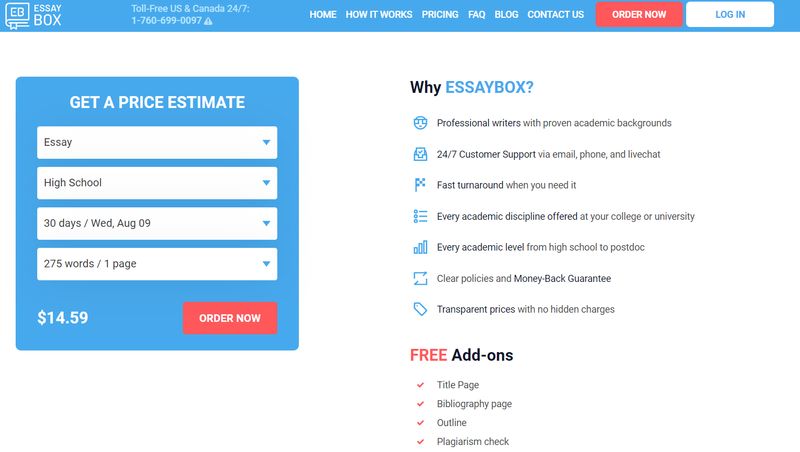
- Articles About Study Tour
- Foreign Study Tour
- Study Tour Definition
- Study Tour in any country
- Study Tour Report
© 2022 Retail Study Tour
International Programs
Anne frank initiative welcomes over 250 clear creek amana eighth graders to university of iowa campus.

On Thursday, May 30, 2024, the Anne Frank Initiative (AFI) , an International Programs affinity group, welcomed 250+ eighth graders from Clear Creek Amana (CCA) Middle School. A strong mission of the AFI is to create outreach opportunities to share Anne Frank’s story, spirit, and her humanitarian message with our youngest generation. Some CCA students have read portions of Anne Frank’s diary during the spring semester. The AFI is directed by Kirsten Kumpf Baele, lecturer in the University of Iowa (UI) Department of German.
“As part of the English Language Arts (ELA) curriculum at CCA, Tollie Lancaster and I were able to teach the students about the Holocaust,” said Lindsay Herr, eighth grade ELA teacher and one of the organizers of the event. “We are honored that Dr. Kirsten Kumpf Baele partnered with us and took the time to teach our students about Anne Frank, and we are excited they were able to meet with and learn from other University of Iowa professors and current University of Iowa students.”
The middle school students began their day with an introduction to Anne Frank, her legacy, and her special connection with Iowa. Throughout the morning, students were divided into breakout sessions which ranged from a virtual reality tour of the Anne Frank House in Amsterdam, and Little Free Library design, to artificial intelligence, writing and identity, and learning about German/Jewish heritage in Iowa City. They also had a tour of the Iowa campus.
At the end the day, students gathered at the Anne Frank sapling on the Pentacrest where Andrew Dahl, the head UI arborist, talked about the white horse chestnut tree, the 13th sapling to be planted in the United States.
“This annual engagement with Clear Creek Amana brings eighth grade students face-to-face with pieces of history that most of them have only encountered through educational texts,” said Mallory Hellman, director of the Iowa Youth Writing Project and AFI advisory committee member. “By visiting the Anne Frank sapling, walking a path of significant locations in Iowa City's Jewish history (and present!), and learning of Anne Frank's Iowan pen-pal , students cement a lived connection between Anne's story and their own.”
The AFI is committed to investigating Anne Frank’s literary contributions, her ongoing legacy, and all that she represents in a more globalized, international, and contemporary context.
“Iowa has a special connection to Anne Frank and her story,” remarked Natoshia Askelson, associate professor in the UI College of Public Health and AFI advisory committee member. “The AFI works to highlight and strengthen that connection. It is vital that Iowans understand how interconnected all our stories and lives are, so that we can prevent violence.”
Organizers of this event included AFI Director Kirsten Kumpf Baele; Lindsay Herr, CCA eighth grade ELA teacher; AFI Advisory Committee members Natoshia Askelson, Carl Follmer, Mallory Hellman, Shereena Honary, and Ana Laura Leyser; and other UI faculty, staff, and students including Andrew Dahl, Glenn Ehrstine, Colleen Kollasch, and Kevin Zihlman.
International Programs (IP) at the University of Iowa (UI) is committed to enriching the global experience of UI students, faculty, staff, and the general public by leading efforts to promote internationally oriented teaching, research, creative work, and community engagement. IP provides support for international students and scholars, administers scholarships and assistance for students who study, intern, or do research abroad, and provides funding opportunities and grant-writing assistance for faculty engaged in international research. IP shares their stories through various media, and by hosting multiple public engagement activities each year.
- Anne Frank Initiative
International Programs at the University of Iowa supports the right of all individuals to live freely and to live in peace. We condemn all acts of violence based on race, religion, gender identity, sexual orientation, and perceived national or cultural origin. In affirming its commitment to human dignity, International Programs strongly upholds the values expressed in the United Nations Universal Declaration of Human Rights .
The state of tourism and hospitality 2024
Tourism and hospitality are on a journey of disruption. Shifting source markets and destinations, growing demand for experiential and luxury travel, and innovative business strategies are all combining to dramatically alter the industry landscape. Given this momentous change, it’s important for stakeholders to consider and strategize on four major themes:
- The bulk of travel is close to home. Although international travel might draw headlines, stakeholders shouldn’t neglect the big opportunities in their backyards. Domestic travel still represents the bulk of travel spending, and intraregional tourism is on the rise.
- Consumers increasingly prioritize travel—when it’s on their own terms. Interest in travel is booming, but travelers are no longer content with a one-size-fits-all experience. Individual personalization might not always be practical, but savvy industry players can use segmentation and hypothesis-driven testing to improve their value propositions. Those that fail to articulate target customer segments and adapt their offerings accordingly risk getting left behind.
- The face of luxury travel is changing. Demand for luxury tourism and hospitality is expected to grow faster than any other travel segment today—particularly in Asia. It’s crucial to understand that luxury travelers don’t make up a monolith. Segmenting by age, nationality, and net worth can reveal varied and evolving preferences and behaviors.
- As tourism grows, destinations will need to prepare to mitigate overcrowding. Destinations need to be ready to handle the large tourist flows of tomorrow. Now is the time for stakeholders to plan, develop, and invest in mitigation strategies. Equipped with accurate assessments of carrying capacities and enhanced abilities to gather and analyze data, destinations can improve their transportation and infrastructure, build tourism-ready workforces, and preserve their natural and cultural heritages.

McKinsey Live event: Faces, places, and trends: The state of tourism & hospitality
Thursday, June 13 at 10:30 a.m EDT / 4:30 p.m CET
Now boarding: Faces, places, and trends shaping tourism in 2024
Global travel is back and buzzing. The amount of travel fell by 75 percent in 2020; however, travel is on its way to a full recovery by the end of 2024. More regional trips, an emerging population of new travelers, and a fresh set of destinations are powering steady spending in tourism.
There’s no doubt that people still love to travel and will continue to seek new experiences in new places. But where will travelers come from, and where will they go?
We share a snapshot of current traveler flows, along with estimates for growth through 2030.
The way we travel now
Which trends are shaping traveler sentiment now? What sorts of journeys do today’s travelers dream about? How much are they willing to spend on their trips? And what should industry stakeholders do to adapt to the traveler psychology of the moment?
To gauge what’s on the minds of present-day travelers, we surveyed more than 5,000 of them. The findings reveal disparate desires, generational divides, and a newly emerging set of traveler archetypes.
Updating perceptions about today’s luxury traveler
Demand for luxury tourism and hospitality is expected to grow faster than for any other segment. This growth is being powered in part by a large and expanding base of aspiring luxury travelers with net worths between $100,000 and $1 million, many of whom are younger and increasingly willing to spend larger shares of their wealth on upscale travel options. The increase is also a result of rising wealth levels in Asia.
We dug deeper into this ongoing evolution by surveying luxury travelers around the globe about their preferences, plans, and expectations. Some widely held notions about luxury travelers—such as how much money they have, how old they are, and where they come from—could be due for reexamination.
Destination readiness: Preparing for the tourist flows of tomorrow
As global tourism grows, it will be crucial for destinations to be ready. How can the tourism ecosystem prepare to host unprecedented volumes of visitors while managing the challenges that can accompany this success? A large flow of tourists, if not carefully channeled, can encumber infrastructure, harm natural and cultural attractions, and frustrate locals and visitors alike.
Now is the time for tourism stakeholders to combine their thinking and resources to look for better ways to handle the visitor flows of today while properly preparing themselves for the visitor flows of tomorrow. We offer a diagnostic that destinations can use to spot early-warning signs about tourism concentration, along with suggestions for funding mechanisms and strategies to help maximize the benefits of tourism while minimizing its negative impacts.
Six trends shaping new business models in tourism and hospitality
As destinations and source markets have transformed over the past decade, tourism and hospitality companies have evolved, too. Accommodation, home sharing, cruises, and theme parks are among the sectors in which new approaches could present new opportunities. Stakeholders gearing up for new challenges should look for business model innovations that will help sustain their hard-won growth—and profits.
Unbundling offerings, cross-selling distinctive experiences, and embracing data-powered strategies can all be winning moves. A series of insight-driven charts reveal significant trends and an outlook on the future.
RELATED ARTICLES

The future of tourism: Bridging the labor gap, enhancing customer experience

The promise of travel in the age of AI
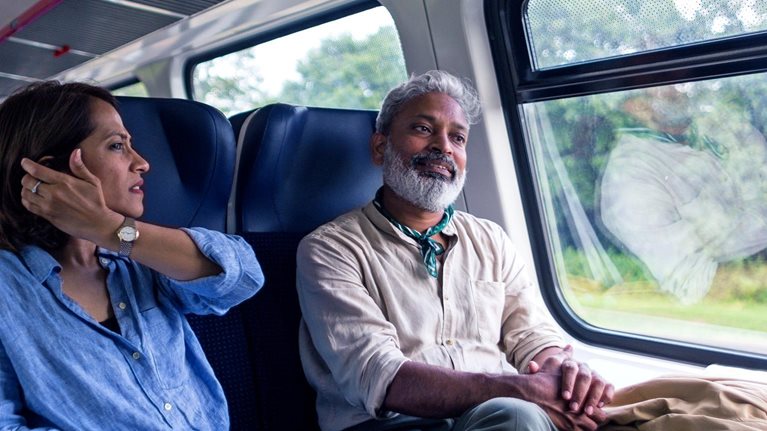
From India to the world: Unleashing the potential of India’s tourists

IMAGES
VIDEO
COMMENTS
This essay sample was donated by a student to help the academic community. Papers provided by EduBirdie writers usually outdo students' samples. On 28th June 2019, Friday, I participated on a short trip with my classmates from the course MPU3412 Social Responsibility to the local heritage-preserving museum called the Muzium Negara, which ...
Educational tours are a vital component of the learning experience, providing students with the opportunity to step beyond the confines of the classroom and immerse themselves in the real-world application of their studies. In this essay, I will delve into the profound impact of my own educational tour, recounting the transformative journey ...
500 Words Essay on Tour Experience Introduction to Touring. Touring is an intricate blend of exploration, education, and exhilaration. It is an opportunity to immerse oneself in a different environment, experience new cultures, and challenge one's comfort zone. The essence of touring transcends mere sightseeing; it is a journey of personal ...
An educational tour is a trip that is done by students to learn about certain things outside their school. This can be a visit to a museum, a factory, a historical site, or even a different country. The main goal of such trips is to give students a chance to see and understand things they have learned in books.
The An Educational Tour essay 100, 150, 200, 250, 300, 500 words in English helps the students with their class assignments, comprehension tasks, and even for competitive examinations. You can also find more Essay Writing articles on events, persons, sports, technology and many more.
Educational tours are an excellent way to enhance the learning experience of students. These tours provide an opportunity to explore the world outside of the classroom and to gain practical knowledge. In this essay, we will explore the educational value of an educational tour that includes a visit to the Museum of Natural History, a Historical ...
September 5, 2015; Gujarat: This field trip was planned so as to make students understand how a farm works. On reaching the farm, students saw a large number of cows, of different varieties. One could see the huge machines used for milking the cows. The farm had a large number of workers.
Download. Essay, Pages 13 (3219 words) Views. 5437. NARRATIVE REPORT "The World is a book and those who do not travel read only a page"—St. Augustine. Educational Tour is part of the students' journey towards learning. Learning is not only limited inside the four (4) walls of the classroom, because we learn best when we are exposed to ...
Step one: Showcasing diverse perspectives in tourism essay examples. Imagine this scenario: While traveling in India, you saw mesmerizing markets with spices. The scents of coriander, cardamon, cumin, and cinnamon formed a subtle trail around you as you went through the small market alleyways, feeling like a character from the tale of Aladdin.
Please don't tell me everything about your trip. I don't want to know your travel schedule or the names of all the castles or restaurants you visited. I don't care about the plane trip that ...
This can be one of the most beneficial aspects of an educational tour. The importance of a school trip to study other cultures cannot be overstated. Students gain a much deeper understanding of the world along with an appreciation of diversity, world history, language and customs. Students also develop self-confidence learning to acclimate to a ...
1109 Words5 Pages. Audience: For this project, my intended audience is my home university's study abroad office in the United States. I will write my reflection as a snapshot of the DIS study tour experience so that the study abroad office could better inform students considering DIS Stockholm (particularly for the subject of Public Health ...
The study trip should play a crucial role in enhancing transnational education and cooperation. How to prepare for a study trip. Team building: Guide students to self-select teams that are balanced in terms of numbers and nationalities. To support students in developing teamwork skills, assign pre-study trip activities.
Generate PDF. The study tour is a part and parcel of knowledge and education. It spreads the horizon of our mind and experience. our school organization study tour for us. I greeted this arrangement. On the first day of our tour, we went to Mainamati and visited Lalmai-Manamati range of hills, Shalban Bihar, Ananda Bihar and the Museum.
school tour experience essay. I would very much like to write an article about my experience in the last school tour, and point out the things I liked the most. I find this tour very different from many of our previous tours. Previously, the tour was in only one place, and curiosity and enthusiasm ended before the tour ended.
The school trip diary. A good school trip report should always include some diary-style entries. If it was a day trip, write up what your students did in the morning and afternoon. If you enjoyed a longer visit, you can separate out the activities from each day. However, rather than simply writing down the itinerary, make sure you explain how ...
ABSTRACT. This paper is based on the retrospective reviews of the Information Systems study group who went on the international study tour to India to learn, network and collaborate with academics, students and industry professionals overseas. The paper addresses concerns of local Australian Science, Technology, Engineering and Mathematics ...
Katherine Depack studied abroad in France for the second time. Studying abroad had always been a desire of mine. Since high school, I wanted to study in France because the teachers and professors who mentored me had grown up with some aspect of French culture in their lives. Their shared experiences fueled my desire to immerse myself into the ...
Taking student groups abroad for short study courses was the most satisfying experience in my almost four decades of teaching at Mary Baldwin University (MBU) in Virginia. MBU has a short three-week "May term" every spring where it is possible for professors to take small groups of students abroad for mini-study tours.
299 Words Essay on an Educational Tour. An educational tour is a part of the academic experience in most schools and colleges. Such tours help students to understand firsthand about various subjects. For instance, schools may take students on educational tours to zoos and parks to acquaint them with flora and fauna.
View PDF. Jafari and Transformation: A model to enhance short-term overseas study tours. Tonia Gray, Benjamin T Jones, Tim Hall. An increasing emphasis on university internationalisation, global citizenship education and outbound mobility experiences (OMEs) has seen international study travel become a key staple of tertiary education.
Essay on Travel Experience in 200 words. We travel to get away from the monotony of our daily lives. It's a refreshing diversion from the monotony of everyday life. It allows our minds to relax and gives our inner child the opportunity to play. Some trip memories are nostalgic and melancholy, while others are daring and exhilarating.
The study tour is an effective mode for students to learn in an effective way. For decades, it gradually has become an emerging mode for practical education in China, underpinned by policies, funds, technology, and human resources. This study aims to showcase how the curriculum of the study tour can currently be operated, including goals, content, teachers, and evaluation, as well as what the ...
Essay writing skills have extensive applications beyond academics, including enhancing your experience on a retail study tour. These skills help you observe more keenly, analyze more critically, and communicate more effectively. While learning to write well is a valuable endeavor, don't hesitate to seek professional help if needed, whether it ...
International Programs (IP) at the University of Iowa (UI) is committed to enriching the global experience of UI students, faculty, staff, and the general public by leading efforts to promote internationally oriented teaching, research, creative work, and community engagement.IP provides support for international students and scholars, administers scholarships and assistance for students who ...
The amount of travel fell by 75 percent in 2020; however, travel is on its way to a full recovery by the end of 2024. More regional trips, an emerging population of new travelers, and a fresh set of destinations are powering steady spending in tourism. There's no doubt that people still love to travel and will continue to seek new experiences ...